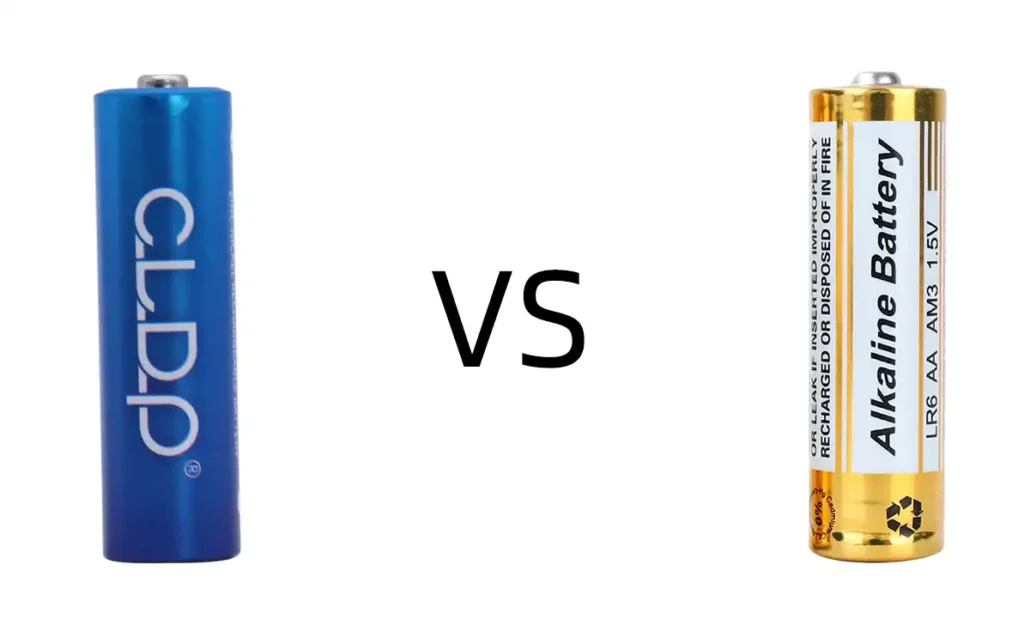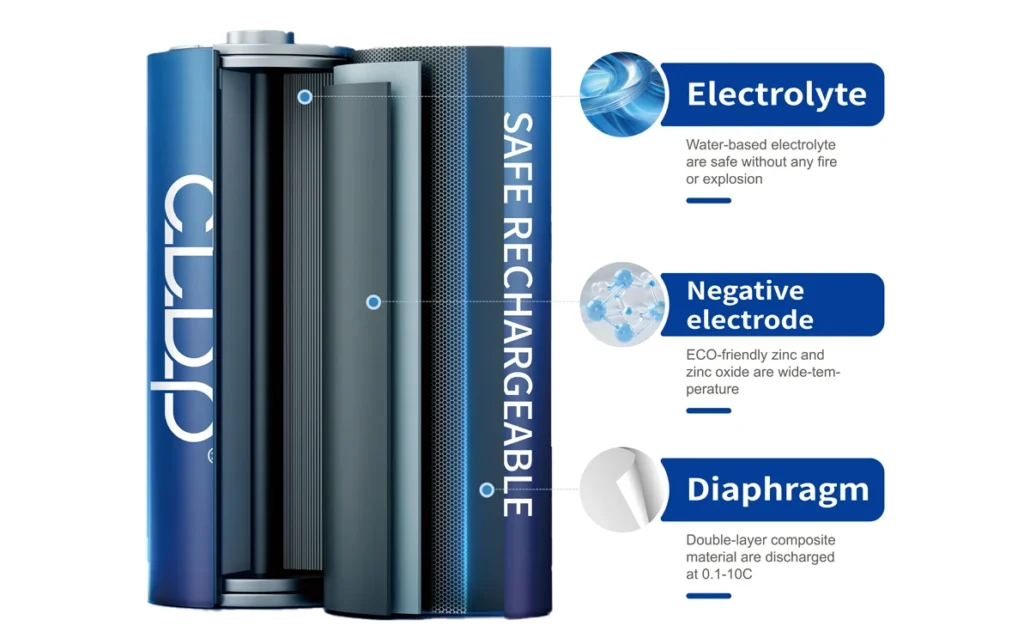Zinc nickel batteries are rechargeable batteries, also known as secondary batteries, while alkaline batteries are non rechargeable batteries, also known as primary batteries. The differences between these two types of batteries are significant in terms of performance, cost, and environmental protection. This article introduces the differences between zinc nickel batteries and alkaline batteries from multiple perspectives.
Performance Performance
Voltage stability: During the discharge process of zinc nickel batteries, the voltage can remain stable at around 1.6V, with a cut-off voltage of 1.3V. However, alkaline batteries gradually decrease from the initial 1.5V to 0.9V. This makes zinc nickel batteries perform better in precision equipment such as electronic scales and blood glucose meters, without being affected by voltage fluctuations that affect measurement accuracy; Alkaline batteries may cause device lag or data distortion midway.
Capacity and battery life: Under the same volume, the capacity of a No. 5 zinc nickel battery is about 500-1500mAh, and that of an alkaline battery is about 2000-2500mAh. However, zinc nickel batteries can be recharged on a cycle, and although they may be slightly inferior after a single full charge, their total cycle life (500 times x 1500mAh) is several hundred times longer than alkaline batteries, and their advantages are overwhelming when used at high frequencies.

Cost accounting
Short term cost: The price of a zinc nickel rechargeable battery is usually 5-10 times that of an alkaline battery. For small appliances such as remote controls that only replace the battery once a year, alkaline batteries are more cost-effective.
Long term cost: Zinc nickel batteries can be recharged 500+times, equivalent to replacing 300-500 alkaline batteries, and their long-term cost is 30 times or even more lower than alkaline batteries.
Environmental Protection and Safety
Environmental friendliness: Some alkaline batteries may contain heavy metals such as mercury and cadmium. Although China has implemented low mercury conversion, indiscriminate disposal still pollutes the environment, and the recycling system is not perfect; Zinc nickel batteries do not contain highly toxic substances and can be recycled through professional channels. The carbon emissions during production are 30% lower than alkaline batteries, which is more in line with the trend of green consumption.
Safety: Long term storage of alkaline batteries may cause leakage and corrosion of equipment electrodes (especially in high-temperature environments); Zinc nickel batteries have a lower probability of leakage and no risk of explosion during charging, making them more suitable for close range devices such as children’s toys and smart homes.
Applicable scenarios
Zinc nickel batteries are more suitable for high power consuming and frequently used devices such as electric toys, game controllers, camera flashlights, as well as household medical instruments that require long-term stable power supply (such as blood pressure monitors), which can leverage their advantages of cyclic charging and stable voltage.
Alkaline batteries are more suitable for low-frequency devices such as smoke alarms and remote controls, with low short-term usage costs and no need to consider charging issues.
Convenience of use
Zinc nickel batteries require a charger with a charging time of 4-6 hours, which is suitable for preparation in advance; Alkaline batteries can be purchased and used immediately without waiting, but require frequent procurement and replacement.
Zinc nickel batteries that have been idle for a long time (more than 3 months) need to be charged and stored, otherwise it may affect their lifespan; Alkaline batteries can be stored at room temperature for 1-2 years, with lower maintenance costs.
Convenience of use
Overall, zinc nickel batteries are the preferred choice for “long termists” and are suitable for users who pursue economy and environmental friendliness; Alkaline batteries are better at “plug and play”, making short-term low-frequency use more worry free. When making a selection, it is necessary to make a comprehensive judgment based on the frequency of device usage, budget, and performance requirements.




